With an MSN MPH dual degree, you can use your nursing experience to make a difference in the world of public health.

You can learn to be a leader in clinical practice, research, health education, or healthcare administration. Choosing a dual program means that you’ll earn two degrees at the same time.
Editorial Listing ShortCode:
Some of the coursework will overlap, which can save you time and money as you work toward the goal of advancing your career in public health nursing.
MSN MPH Dual Degree Programs

Nursing and public health go hand in hand. Both fields focus on helping others live healthy lives. It can be strategic, then, to pair studies in these two fields for a dual degree.
With joint graduate studies in nursing and public health, you can prepare for healthcare leadership roles. Your nursing studies will tend to focus on clinical care and healthcare leadership. The public health portion of your coursework will address population health, healthcare equity, and government policy.
Editorial Listing ShortCode:
Together, these two programs can help equip you with the skills and expertise to head up research or programs that can make a real difference for people’s health and wellbeing.
What Is an MSN Degree?
A Master of Science in Nursing (MSN) is an advanced degree in the nursing field. For those who are already registered nurses (RNs), this advanced degree could be a natural next step.
In an MSN program, you can study evidence-based practices, pharmacology, and physiology. You can also learn about leadership and the role of advanced nurses. MSN graduates tend to be nurse leaders. They may head up teams of nurses and serve as a liaison between facility administration and nursing staff. An MSN can also lead to a career as an advanced practice registered nurse (APRN), such as a nurse practitioner.
What Is an MPH Degree?

A Master of Public Health (MPH) is a graduate program focused on community and population health. This field includes epidemiology, health education, health policy, and environmental health.
MPH students take classes in global health, disease patterns, health determinants, and wellness interventions. They can also learn to plan, implement, and evaluate programs. Other topics may include biostatistics and data analytics.
Some professionals with an MPH degree become epidemiologists, health researchers, policy advocates, or community health educators. They can also hold administrative roles in public health departments or other healthcare facilities.
Common MSN/MPH Joint Degree Concentrations

To narrow the focus of your combined studies, it could be beneficial to choose a concentration. That way, you can direct your coursework toward a particular portion of the healthcare field. Becoming an expert in one focused area may help you stand out as a top candidate for certain jobs.
- Epidemiology. The field of epidemiology addresses disease patterns and factors that influence their spread. To focus on this area, you’ll study course topics like data analysis for healthcare, epidemiology of infectious diseases, and sampling methods.
- Global Health. If you want a career spent improving health for people around the world, you might consider a global health concentration. The coursework will likely address environmental health, social determinants, epidemiology, and informatics.
- Health Services Leadership and Management. If your goal is to be a nurse leader in a public health setting, then you will typically take course topics like healthcare quality, organizational leadership, and healthcare administration.
The MSN and MPH concentrations available at different schools can vary. You may want to look around for the degree combinations that best fit your career goals.
Nursing and Public Health Careers & Salaries
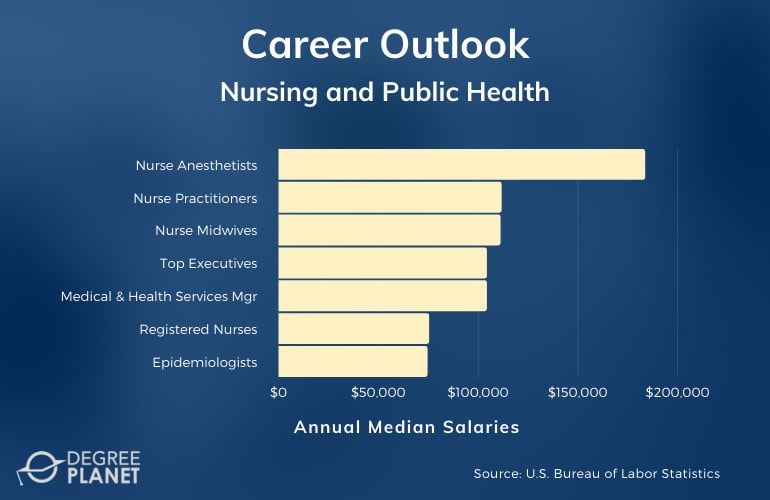
Whether you’re more interested in clinical practice or public health leadership, MSN/MPH programs could help you accomplish your goals.
Clinical practice might be the reason you decided to become a nurse in the first place. As a public health nurse practitioner, you could continue your clinical work. In health departments or community organizations, professionals with these degrees may plan and run programs. Their initiatives can encourage healthy lifestyles or provide support to people with chronic conditions.
According to the Bureau of Labor Statistics, the median annual salary for healthcare practitioners is $75,040.
| Careers | Annual Median Salaries |
| Nurse Anesthetists | $195,610 |
| Nurse Practitioners | $120,680 |
| Nurse Midwives | $112,830 |
| Medical and Health Services Managers | $101,340 |
| Top Executives | $98,980 |
| Epidemiologists | $78,830 |
| Registered Nurses | $77,600 |
| Social and Community Service Managers | $74,000 |
| Health Education Specialists | $60,600 |
| Community Health Workers | $46,590 |
In some cases, having two master’s degrees may qualify you to hold leadership roles and earn above-average wages in a particular job category.
Some nurse practitioners work for local health departments. They may run vaccine clinics or provide early intervention services for at-risk infants. Some nurses with master’s degrees also hold leadership positions, often in supervisory roles over a team of nurses. Alternatively, they may be in charge of a particular task in a healthcare setting, such as managing nursing informatics.
Editorial Listing ShortCode:
Other MPH/MSN graduates work as researchers. Epidemiology and other branches of health research provide valuable knowledge about preventing and treating diseases.
Dual MPH-MSN Curriculum & Courses

For a dual degree, you’ll take two sets of classes. Some will address advanced nursing topics, and others will cover public health. Because of the dual-degree arrangement, some of the classes you take can count toward both degree programs.
- Advanced Public Health Nursing: A class on the public health nursing profession may lay the foundation for your studies and give you a better idea of what career track you’d like to pursue.
- Assessment Skills: This course will develop your skills in analyzing patients’ health needs and determining diagnoses.
- Epidemiology Methods: By taking this class, you can become more knowledgeable about how epidemiological data is collected and how to properly interpret scientific literature.
- Environmental Health: The curriculum for this course will address ways that people’s living and work environments influence their overall wellbeing.
- Healthcare Informatics: In this class, you’ll learn about technological systems that can improve the collection and management of patient data.
- Healthcare Leadership: As you prepare to lead healthcare teams or organizations, you’ll study business and personnel-management principles.
- Law, Policy, and Ethics in Public Health: You’ll learn about current healthcare regulations, discuss methods of influencing policy decisions, and consider the role that ethics should play in healthcare leadership.
- Pharmacology: As you learn about prescription drug categories, you’ll also study rules and regulations about writing prescriptions.
- Physiology: Your time in this class will focus on normal body processes as well as changes brought on by various diseases.
- Public Health Programming: Taking this class may help you evaluate community needs, plan related programs, and evaluate their effectiveness.
While there will probably be core classes that everyone in your program must take, there may also be electives or courses that are specific to your concentration tracks.
How to Choose an Online Dual MSN/MPH Degree Program

You’re going to spend several years in your masters in public health nursing program. Your studies will likely be more enjoyable if you select a program that’s a good match for you. You might want to consider the following criteria as you compare schools.
- Accreditation. Regional accreditation is a must-have for any reputable MSN/MPH professional. You may also want a college that’s approved by the Council on Education for Public Health (CEPH).
- Concentrations. Different programs emphasize different aspects of the nursing and public health fields. Because there are so many different directions you could take this pair of degrees, it’s strategic to seek out concentrations that align with your interests.
- Online vs. campus-based. Online college classes are flexible, but some students like the experience of attending school in-person. Whichever you prefer, you can generally find a program to match.
- Requirements. The programs that you’re considering may require one or more in-person professional experiences, such as practicums or internships. You may also be required to write a thesis before graduation.
- Tuition. The per-credit-hour cost of classes, the required fees, and your financial aid package will affect the total price of attending a particular school.
Many of these factors are subjective, so a top school for some students may not be the best choice for you. While you can consider others’ views, it’s beneficial to give your own preferences top priority.
Dual MPH/MSN Degree Admissions Requirements

To get into a joint program, you’ll probably need to meet the admission requirements for both of the individual programs. Requirements commonly include:
- GRE scores (only some schools require them)
- Active nursing license
- Reference letters from professional and academic leaders
- Official transcripts
Universities may require a BSN to be accepted into an MSN degree program. If you have an RN but no BSN, some universities offer an accelerated RN to BSN online program that may be a good option for you.
Typically, gaining admission for a dual master’s degree entails submitting an individual application to each of the programs. Your transcripts may also need to include proof of a minimum GPA or certain prerequisite courses in statistics, health, or math.
Accreditation

Healthcare professionals are held to high standards, so a reliable education is essential. For the sort of education that can impress employers and satisfy licensing requirements, you should consider attending a regionally accredited college.
The accreditation process involves evaluating whether a college meets set standards. Regional accreditation is the most widely accepted form of accreditation in the US. There are many reasons to limit your college search only to regionally accredited schools.
Editorial Listing ShortCode:
For instance, your credits are more likely to transfer to other colleges. A masters degree from an accredited school can also be a requirement for doctoral programs, licensure exams, and reputable jobs.
Nursing Licensure and Certifications

After completing an MSN in Public Health or a related program, you may be eligible to pursue certificates in this field. Some advanced practice registered nurses specialize in a particular type of nursing.
The American Association of Nurse Practitioners Certification Board offers credentials like family nurse practitioner (FNP) and adult-gerontology primary care nurse practitioner (A-GNP). These certifications are accepted by all state nursing boards.
Public health certifications could bolster your resume as well. If you graduate from a CEPH accredited program, you may be eligible to receive the Certified in Public Health status from the National Board of Public Health Examiners.
Financial Aid and Scholarships

Earning two degrees may sound like an expensive proposition, but financial aid can help students who qualify. One of your first steps can be to complete the Free Application for Federal Student Aid (FAFSA). Many students receive support from government programs. As a graduate student, you’re more likely to qualify for loans, but grants may be available in some cases.
Colleges also provide scholarships for some graduate students. You might be able to receive funding through the MSN program, the MPH program, or both. Industry associations or community organizations can be other scholarship or fellowship sources to explore. If you work while in school, your workplace might contribute to your costs, too.
Which Is Better, MSN or MPH?

If you’re a registered nurse who wants to continue in nursing practice, an MSN can help you grow your skills and expertise. This degree program can prepare you to work as an advanced practice registered nurse, such as a nurse practitioner, or become a leader among nurses.
If you’d rather transition into health education or epidemiology instead of clinical care, then an MPH might be a better fit. Public health professionals often conduct research or run community organizations. Of course, if you simply can’t decide, you might be a fitting candidate for dual MSN MPH programs.
What Can You Do with an MSN and MPH Joint Degree?
Advanced degrees in nursing and public health can help you become a local or global healthcare leader. Some professionals work as public health nurses for health departments, community organizations, or schools. In that role, you might provide clinical care, oversee data collection, or coordinate teams of nurses.
Your educational background might also help you become a health educator. Knowing that you are a licensed nurse might encourage some patients to pay close attention to your information. According to the Bureau of Labor Statistics, educators often work for hospitals or the government.
How Long Does It Take to Get a Dual-Degree MSN-MPH?

A joint MSN-MPH program may take 2 to 3 years to complete with full-time study, depending on the school’s requirements. Programs that require around 60 credit hours last about 2 years. Those that require more than 80 credits are likely to take 3 years.
Participating in internships and clinical hours may stretch out a program, and a thesis can also add to the overall timeframe. On the other hand, online classes sometimes run on accelerated schedules that can shorten the time spent in school. This is the case whether it’s an online MSN and MPH or an online MSN and MBA dual degree program.
Is an MSN-MPH Dual Degree Worth It?
Yes, an MSN-MPH dual degree is worth it for many students. Healthcare is a booming field. The Bureau of Labor Statistics says that jobs for health education specialists are expected to grow by 8% over the next decade, and nurse practitioner roles will increase by 46%.
Editorial Listing ShortCode:
Choosing a dual program means that you can have two advanced degrees to list on your resume. The specialized skills you can gain by studying nursing and public health together could set you apart as a highly qualified candidate for many healthcare roles.
Universities Offering Dual MSN and MPH Degree Programs
Methodology: The following school list is in alphabetical order. To be included, a college or university must be regionally accredited and offer degree programs online or in a hybrid format.
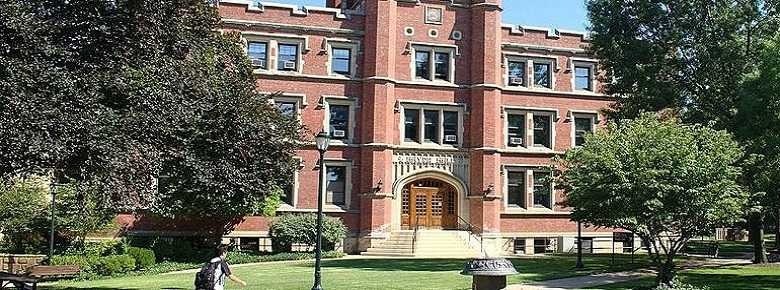
Case Western Reserve University offers a dual MSN and MPH degree program. It usually takes one year longer to complete this dual degree than it take to complete a single degree. Students have academic advisors in both the School of Public Health and the School of Nursing. Applicants need to apply and be accepted into each program separately.
Case Western Reserve University is accredited by the Higher Learning Commission.

Emory University offers a dual MSN and MPH degree program designed to prepare nurses for leadership roles in healthcare. Students are required to complete 36 credit hours of coursework in nursing and 32 credit hours in public health. They must also choose a specialty in advanced practice nursing and complete a thesis, special project, or comprehensive examination in public health.
Emory University is accredited by the Southern Association of Colleges and Schools Commission on Colleges.

Indiana Wesleyan University offers an online dual MSN and MPH degree program that gives students the opportunity to earn two master’s degrees within 3 years. Online students complete practicum hours locally. Class sizes are small, and coursework includes Evidence Based Communication, Theoretical Foundations for Advanced Nursing Practice, and Foundations in Public Health Practice.
Indiana Wesleyan University is accredited by The Higher Learning Commission.

Johns Hopkins University offers an MSN (Public Health Nursing) and MPH joint degree. The program requires students to obtain 36 credits and complete 504 clinical hours. Students may study full time or part time. Full-time students can typically complete the program in 18 months. The program begins once each year in July.
Johns Hopkins University is accredited by the Middle States Commission on Higher Education.

New York University offers a dual degree in nursing (MS and MPH). Prospective students can apply for any of the eight different nursing specialties, including Psychiatric-Mental Health, Pediatrics, and Adult-Gerontology Acute Care. Other specialty options are Adult-Geriatric Primary Care, Nursing Administration, Nursing Education, Nursing Informatics, and Nurse-Midwifery. The program typically takes 3 years to complete.
New York University is accredited by the Middle States Commission on Higher Education.
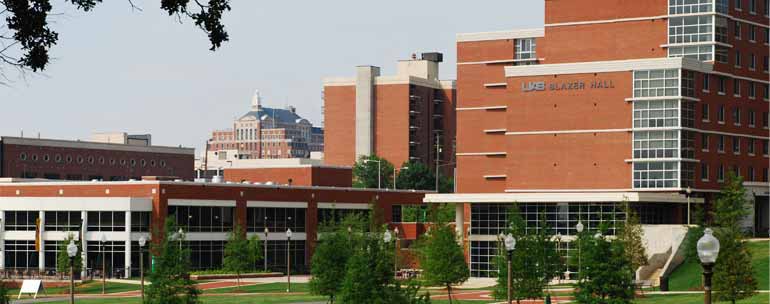
The University of Alabama—Birmingham offers a joint Master of Public Health and Master of Science in Nursing with a specialization in Maternal and Child Health. Additional concentrations are available for Adult, Family, and Pediatric Nurse Practitioners. This program uses a blend of online and on-campus coursework. Classes cover topics like epidemiology, health economics, assessment, and biostatistics.
The University of Alabama at Birmingham is accredited by the Southern Association of Colleges and Schools Commission on Colleges.
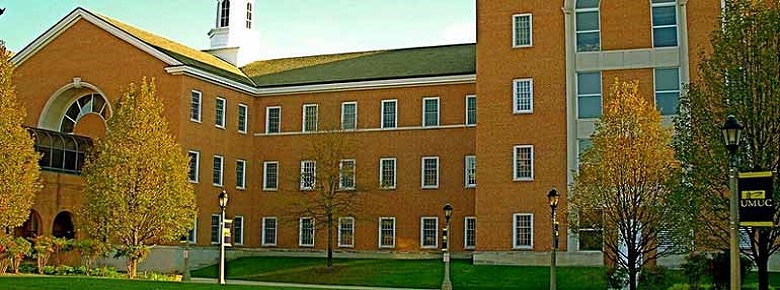
Earning an MSN and MPH dual degree from the University of Maryland can help prepare you for a diverse range of careers in both nursing and public health. Within the MPH program, students can choose a concentration in either Epidemiology or Community and Population Health. Both degrees can potentially be earned in as little as 3 years.
The University of Maryland is accredited by the Middle States Commission on Higher Education.

The University of Pennsylvania offers a dual MSN and MPH degree. It includes courses such as Current Issues in Health and Social Policy, Principles and Practice of Healthcare Quality Improvement, and Advanced Roles in Administrative Nursing Practice. Prospective students must submit applications to both programs.
The University of Pennsylvania is accredited by the Middle States Commission on Higher Education.
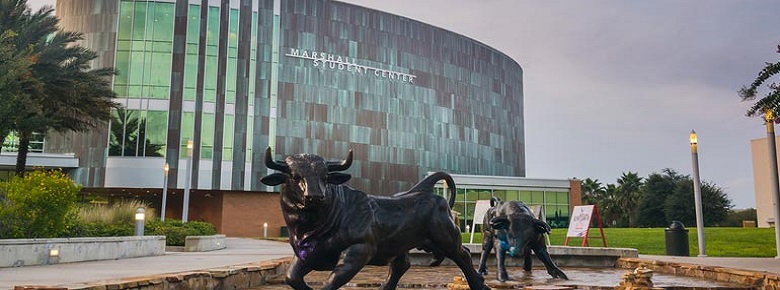
The University of South Florida offers an interdisciplinary concurrent degree program in nursing and public health. The MSN requires 40 credit hours of coursework, and the MPH requires 42 credit hours. The MPH program includes a concentration in Environmental and Occupational Health, and the MSN includes a concentration in Occupational Health Nurse Practitioner.
The University of South Florida is accredited by the Southern Association of Colleges and Schools Commission on Colleges.

Yale University offers a joint MSN and MPH degree. The program usually takes 3 years to complete. Scheduling between the nursing and public health programs is compatible for students of every clinical nursing specialty except nurse midwifery. Courses include Biostatistics in Public Health, Social Justice and Health Equity, and Foundations of Epidemiology and Public Health.
Yale is accredited by the New England Association of Schools and Colleges.
Getting Your MSN/MPH Dual Degree Online

Healthcare leaders make an invaluable difference in others’ lives. A Master of Science in Nursing can help you grow as a nurse, and a Master of Public Health can train you to improve health outcomes at the community level. The two degrees can work together to help you become a knowledgeable public health nurse.
Completing courses for two different programs can take time and dedication, but online classes can help simplify the process. With accredited dual masters degree programs online, a busy schedule doesn’t have to keep you from earning respected degrees.
If you’re ready to take the next step in your career, you can explore the best online public health degree colleges with dual MSN-MPH programs to find the one that’s the best fit for you.

